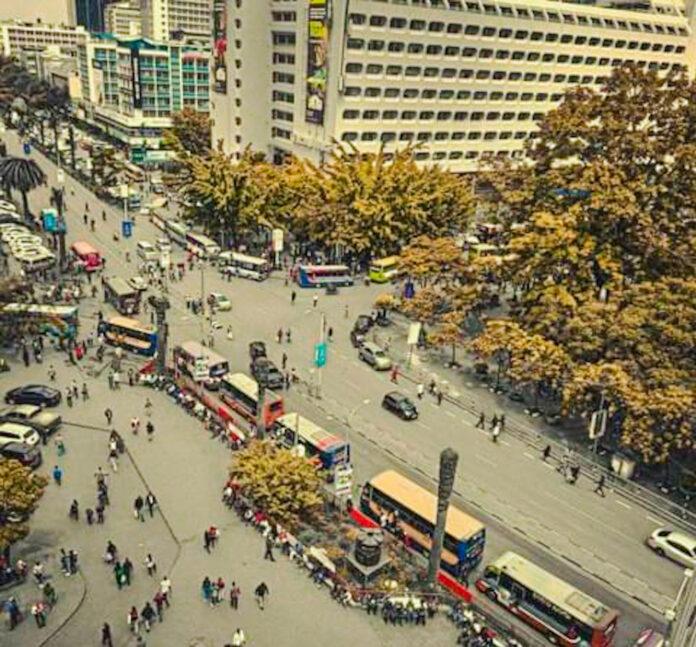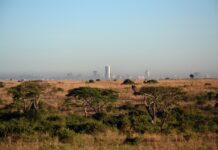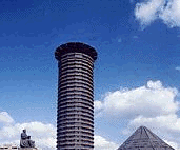Nairobi City, located in Kenya, is a vibrant and bustling metropolis with a rich history and a diverse population. Founded in 1899, the city has grown exponentially over the years and is now a major economic hub in East Africa. Spanning an area of 696.1 square kilometers, Nairobi is home to a melting pot of cultures, ethnicities, and backgrounds. In this article, we will explore the factors contributing to the population growth of Nairobi, the challenges it poses, the diversity of its population, the economic impact of this growth, urban planning and infrastructure in response, future projections, and the need to embrace this diversity while managing the city’s growth.
Nairobi City Population
The Nairobi City population has been steadily increasing over the years. As of 2022, the population stands at 5,119,000, showing a 4% increase from the previous year. The metro area population of Nairobi in 2021 was 4,922,000, reflecting a 3.95% increase from 2020. This rapid population growth can be attributed to various factors that have attracted people from different parts of Kenya and beyond.
Factors Contributing to the Population Growth
There are several factors that have contributed to the population growth in Nairobi. Firstly, Nairobi serves as the economic and political center of Kenya, offering numerous job opportunities, better healthcare facilities, and quality education. As a result, people from rural areas and other parts of the country migrate to Nairobi in search of a better life. Additionally, the city’s infrastructure, including its well-developed transportation network and communication systems, further attracts people to settle here.
Another significant factor is the presence of international organizations, embassies, and multinational corporations in Nairobi. These entities provide employment opportunities not only for Kenyans but also for expatriates from different countries, leading to an influx of foreign nationals into the city. Furthermore, Nairobi’s vibrant cultural scene, with its theaters, art galleries, and music festivals, acts as a magnet for individuals seeking a cosmopolitan and diverse environment.
Challenges of Rapid Population Growth in Nairobi
While the population growth in Nairobi brings many advantages, it also poses numerous challenges. One of the most pressing issues is the strain it places on the city’s infrastructure and resources. The rapid increase in population has resulted in overcrowding, inadequate housing, and overstressed public services such as transportation, healthcare, and sanitation. This has led to a decline in the quality of life for many residents, particularly those in low-income areas.
Additionally, rapid urbanization and unplanned settlements have led to the emergence of slums in Nairobi. These informal settlements lack basic amenities and are characterized by poor sanitation, limited access to clean water, and high levels of poverty. Addressing these challenges requires a comprehensive approach that includes urban planning, investment in infrastructure, and the provision of affordable housing.
The Diversity of Nairobi’s Population
Nairobi is renowned for its diversity, with people from various cultural and ethnic backgrounds coexisting harmoniously. The city is a microcosm of Kenya’s multicultural society, with over 40 different ethnic groups represented. The major ethnic groups include the Kikuyu, Luo, Luhya, and Kalenjin, among others. Each group brings its unique traditions, languages, and customs, contributing to the vibrant tapestry of Nairobi’s social fabric.
Furthermore, Nairobi is home to a significant expatriate community. The presence of international organizations, diplomatic missions, and multinational corporations attracts individuals from different countries, fostering a multicultural environment. This diversity is evident in Nairobi’s culinary scene, where one can find a wide array of cuisines from around the world, as well as in its festivals and celebrations that showcase the cultural heritage of different communities.
Economic Impact of Population Growth in Nairobi
The rapid population growth in Nairobi has had a significant economic impact. The city’s expanding population has created a large consumer market, attracting businesses and driving economic growth. This has led to increased investment, job creation, and entrepreneurship opportunities. Moreover, the presence of multinational corporations and international organizations has contributed to the development of a vibrant business ecosystem, attracting both local and foreign investors.
Additionally, the diverse skills and talents of Nairobi’s population have fueled innovation and creativity, making the city a hub for technology startups, creative industries, and the arts. The entrepreneurial spirit and the exchange of ideas among individuals from different backgrounds have positioned Nairobi as a center of innovation and excellence in various sectors.
Urban Planning and Infrastructure in Response to Population Growth
To address the challenges posed by the rapid population growth, Nairobi has embarked on various urban planning and infrastructure development initiatives. The government has invested in expanding and upgrading transport networks, including roads, railways, and airports, to improve connectivity within the city and beyond. Additionally, efforts have been made to enhance the provision of affordable housing and to upgrade informal settlements, with the aim of improving living conditions for all residents.
Furthermore, the development of commercial and residential centers outside the city center, such as the Westlands and Upper Hill areas, has helped alleviate congestion and promote balanced urban growth. The construction of modern business parks and mixed-use developments has attracted investment and provided employment opportunities. These urban planning initiatives aim to create a sustainable and resilient city that can accommodate the growing population while ensuring a high quality of life for its residents.
Future Projections and Implications for Nairobi’s Population
Looking ahead, the population of Nairobi is expected to continue its upward trajectory. The United Nations projects that by 2030, the city’s population could exceed 6 million. This growth will present both opportunities and challenges for the city. It will require strategic planning, investment in infrastructure, and the provision of essential services to accommodate the needs of the expanding population.
Moreover, the increasing diversity of Nairobi’s population will require efforts to foster social cohesion and inclusivity. Embracing and celebrating this diversity will contribute to the city’s cultural richness and promote a sense of belonging among its residents. It is essential for Nairobi to harness the talents and skills of its diverse population to drive innovation, economic growth, and social progress.
Conclusion: Embracing the Diversity and Managing the Growth of Nairobi City
In conclusion, Nairobi City’s population growth and diversity are integral to its identity and development. The city’s rapid increase in population brings both advantages and challenges, necessitating careful planning and investment in infrastructure. The diversity of Nairobi’s population, with its multitude of cultures, ethnicities, and backgrounds, adds to the vibrancy and richness of the city. By embracing this diversity and managing the growth effectively, Nairobi can create a sustainable and inclusive future for its residents. It is imperative to prioritize the well-being and quality of life of all individuals, ensuring that Nairobi continues to thrive as a global city that celebrates its cultural heritage while embracing the opportunities of the future.
Discover the vibrant and diverse city of Nairobi. Plan your visit today and experience the fusion of cultures, the thriving business scene, and the natural beauty that Nairobi has to offer. Don’t miss out on the opportunity to explore this dynamic metropolis and witness firsthand the growth and diversity that make Nairobi truly unique









